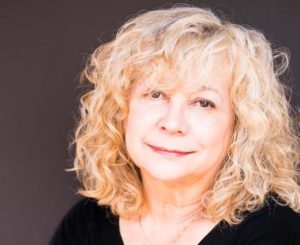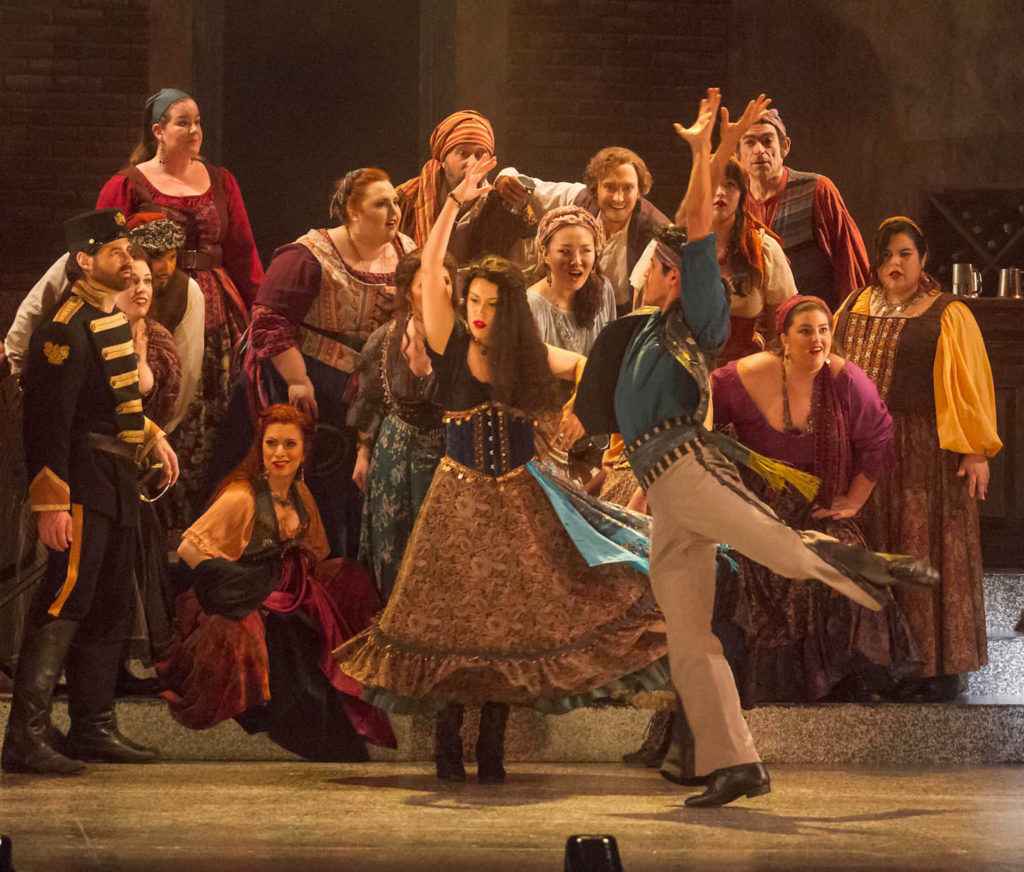
Q & A: Director Lillian Groag on Breathing New Life into ‘Carmen’ at Opera San José
By David SalazarWhen she was a child, Lillian Groag’s family treated opera as if it were pop music.
So it’s no surprise that by the time she was but five, she was already attending her first opera and falling in love with the art form.
“By 10 I knew the words of all the big 10 which I wailed around the house to the intense discomfort of family, friends and neighbors,” she told OperaWire in a recent interview. She noted that she had a particular affinity for the character of Amneris in Verdi’s “Aida,” though she expressed that the attachment was inexplicable.
Raised in both Argentina and Uruguay, Groag would eventually make her way to the U.S. where she would eventually make her way to the theater, first as an actor, and then as a director and playwright.
She entered the opera world in 1993 with a production of “Tosca” at Virginia Opera and subsequent renditions of “La Bohème” and the world premiere of Simón Bolivar,” both with the same company. She would also director with such companies as the New York City Opera, Florida Grand Opera, Chicago Opera Theatre, and Boston Lyric Opera, among many others.
And now starting on Feb. 12, 2022, opera audiences in San José will get a chance to check out “Carmen” directed by Groag.
The director spoke to OperaWire about taking on Bizet’s masterwork.
OperaWire: What drew you to direct a new production of “Carmen?”
Lillian Groag: It’s one of my first and favorite operas, and some of my happiest experiences in the field have taken place at Opera San José.
OW: A work this famous has a number of performance clichés and interpretations. How did this impact your approach to directing the production?
LG: By carefully and intentionally trying to avoid all those. They tend to be narratively inaccurate, and somehow put the audience in the somniferous trance of “I’ve seen this before.” I always want audiences to look at an old piece with new eyes and ears. It is possible, just a little trickier, as falling into contemporary tropes isn’t an option for me.
But certain works endure because they retain something that speaks to peoples of other cultures and other times. I try to find what that is. Is it still valid? And can it bring new thought to those who watch and listen carefully and attentively?
OW: What is your approach to directing the opera and how do you hope that it reintroduces the work to audiences who experience it?
LG: Every opera has its own original “style.” It would be problematic to direct “Parsifal” under the same tenets of “Cavalleria,” for instance. Or “Bohème” as “Agrippina.”
Opera is theatre, so I always begin with the text. What’s the story here? What happens to whom and why? And can you hear that in the music? And what is that world in which such things can happen? Is it anything like ours? Is this a cautionary tale? Will it be clear to the audience?
OW: One of the most challenging elements of this work is the depiction of Don José. In many ways, he has been portrayed through a tragic lens, yet a more modern viewing would likely condemn him as an abuser. What’s your take on José and how do you view his relationship with Carmen?
LG: I find it always dangerous to approach great works of theatre (musical or not) in terms of “good guys” and “bad guys,” because instead of getting a complex story of multiple causalities, you end up with a police report or a pathological diagnosis. The novella is mostly told in the first person by Don José. Why is the “don” important? Because in Spain it indicates a high stratum of society. As in “Don Giovanni,” which also takes place in Seville. José is then out of his “class” in that little garrison in Seville. Why is he there? We find out that he has already killed a man in a fight and as it was often the case, the family got him out of town in Navarre and sent him to the other end of the continent to keep him out of jail. It would also be misleading to interpret pre-Freudian writing by our post-Freudian standards. It’s not only that it would be inaccurate, but it would be beside the point(s) the author wanted to make.
Unlike life – where there are some good guys and bad guys – the art I am interested in deals with the unsolvable difficulties of life in all its forms. The last person José should run into is Carmen. The last man Carmen should get involved with is José. But they do. And the music they make is fantastic. Without it, it would be an unremarkable, shabby story indeed.

Credit: Bob Shomlet
OW: Flamenco plays a role in your production. What inspired this choice? How will this unique Spanish dance style help explore this seminal story?
LG: Flamenco is a percussive dance born in Andalusia now danced internationally. With its aggressive steps, passionate intensity, and ensuing edge of danger it best “describes” the ambiance of this opera. It was also strictly the domain of the Roma people. And Carmen is a “bohémienne,” or Romani, and lives in that culture. She starts Act two dancing and singing a “Chanson de Bohème.” She specifically tells José that she’s planning on going to Lillas Pastia’s tavern to drink some Manzanilla and dance the seguidilla, which is a variation of the flamenco canon.
OW: What do you feel your responsibility is as a director in the modern opera world?
LG: First and foremost to give the opera house that hired me a good show. One always hopes that it will give an audience food for thought and moments of recognition. I can’t remember who said that people go to the theatre to have their life recounted to them, and whereas few people live the nomadic and often dangerous life of 19th century Romanis, there should be reflections of that “mirror held up to nature” that Hamlet mentions to his Players.
OW: Who are some opera directors you look up to? Was there any production or work that inspired your desire to work in the art form?
LG: I am drawn to the work of Robert Carsen, David McVicar, Franco Zeffirelli, Luchino Visconti, Giorgio Strehler, Walter Felsenstein, Peter Sellars, Nuria Espert Romero, Patrice Chéreau… all for different reasons. Past productions that never fail to inspire: Karajan’s “Der Rosenkavalier” with Schwartzkopf and Edelman, Carsen’s “Onegin” with Fleming and Hvorostovsky, the Chéreau/Boulez Bayreuth Ring, Strehler’s “Tempest,” Otto Klemperer’s “Champagne Operettas.”
OW: What is one opera you would love to direct in the future and why?
LG: I would like to do the Mozart/Da Ponte trilogy with the same cast, as a sort of cycle.” I never find they are funny enough and consequently don’t turn serious enough at the end. I’ve done all three separately, but never consecutively as an exploration of what we understand as “love.”
I would also like to do a “cabaret” version of “The Merry Widow,” much funnier AND more serious than people think. On the verge of WWI, of course. Great score too.


